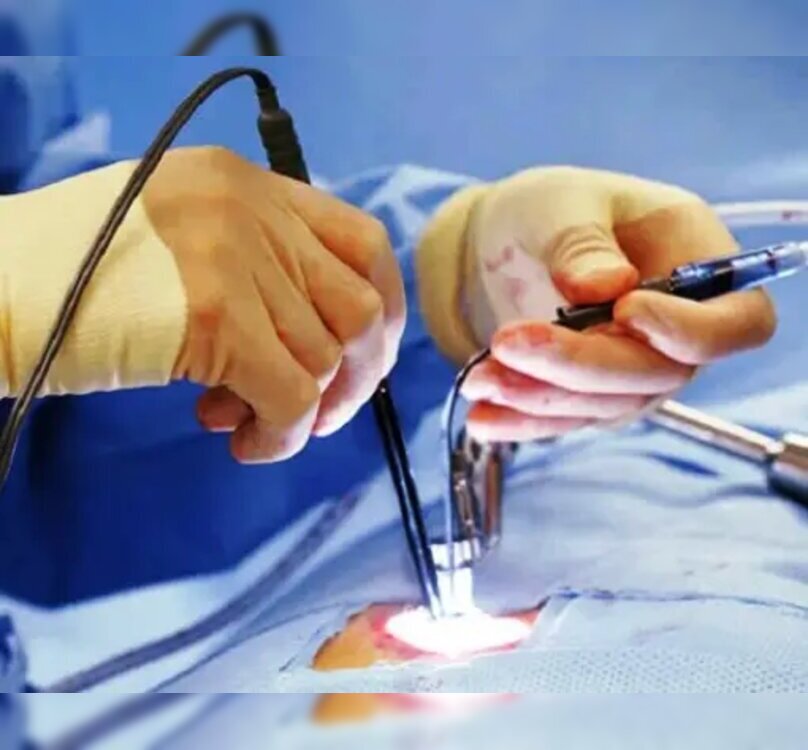Endoscopic spine surgery is a minimally invasive technique used to treat various spine-related conditions. In this procedure, surgeons use a small incision and a thin, flexible tube equipped with a camera (endoscope) to view the spine and perform the surgery. The primary advantage of Endoscopic Spine Surgery in Mumbai is its ability to reduce recovery times, minimize pain, and lower the risk of complications when compared to traditional open surgery.
This procedure is commonly used to treat conditions like herniated discs, spinal stenosis, and degenerative disc disease. By using advanced imaging techniques, the surgeon can precisely target the problem area, making it an ideal option for patients seeking effective treatment with a quicker recovery time.
Patients undergoing Endoscopic Spine Surgery in Mumbai typically experience less blood loss, shorter hospital stays, and a faster return to normal activities. With smaller incisions, the chances of infection are also significantly reduced. Additionally, this technique can be performed on an outpatient basis, allowing patients to return home the same day.
For those in need of spine surgery, Endoscopic Spine Surgery in Mumbai offers a promising solution that combines advanced technology with minimal disruption to daily life. It’s important to consult with a qualified spine specialist to determine if this approach is right for your specific condition.
Endoscopic spine surgery typically involves three main stages:
- Preoperative Preparation: Before the procedure, the patient undergoes a thorough evaluation, including medical history review, physical examination, and imaging tests such as X-rays or MRIs. The surgeon will discuss the details of the surgery, potential risks, and recovery expectations.
- Surgical Stage: During the surgery, the patient is given anesthesia. The surgeon makes a small incision near the affected area of the spine. Through this incision, an endoscope (a small tube with a camera) is inserted to provide real-time imaging. The surgeon then uses specialized instruments to remove or repair damaged tissue, such as a herniated disc or bone spurs.
- Postoperative Recovery: After the procedure, the patient is monitored for a short period before being discharged, often on the same day. Postoperative care includes pain management, physical therapy, and follow-up appointments to ensure proper healing. Recovery times are typically faster than traditional spine surgeries, allowing for a quicker return to normal activities.
Synapse Spine recommends the following precautions for Endoscopic Spine Surgery in Mumbai to ensure a successful procedure and optimal recovery:
- Pre-Surgery Health Assessment: Patients should undergo a thorough medical evaluation, including imaging tests (MRI, CT scans) to ensure the surgery is appropriate for their condition. It’s crucial to disclose any existing medical conditions, medications, or allergies to the surgeon.
- Follow Surgeon’s Instructions: Adhere to all preoperative instructions, including fasting before surgery, stopping certain medications (e.g., blood thinners), and avoiding smoking or alcohol, which can interfere with healing.
- Arranging Transportation: Since endoscopic spine surgery is minimally invasive, some patients can go home the same day. However, it’s essential to arrange for transportation as driving post-surgery is not recommended.
- Postoperative Rest and Recovery: Rest is essential for the first few days post-surgery. Patients should avoid heavy lifting, twisting motions, or any strenuous activities that may strain the spine. Gradual, gentle movement is encouraged to promote healing.
- Pain Management and Medication: Follow the prescribed pain management plan, including medications and any recommended therapies. Notifying the doctor about excessive pain or discomfort is crucial for adjusting treatment.
- Physical Therapy: Engaging in post-surgery rehabilitation and physical therapy, as advised by the surgeon, helps improve mobility, strengthen muscles, and reduce the risk of future spine issues.
By following these precautions, patients can ensure a smoother recovery and better outcomes from Endoscopic Spine Surgery in Mumbai.
You can find the location of Synapse Spine Clinic in Mumbai, using the following Google Maps link: Synapse Spine Clinic Location.
How to Reach Synapse Spine Clinic:
For Patients Using the Western Line:
- Train: Take a train on the Western Line and get off at Virar Station.
- Taxi or Auto: From the station, take a short taxi or auto ride to the clinic (about 5-10 minutes).
For Patients Using the Central Line:
- Train: Take a train on the Central Line and get off at Dadar Station.
- Transfer to Western Line: From Dadar Station, take a train on the Western Line heading towards Virar Station.
- Taxi or Auto: From Virar Station, take a short taxi or auto ride to the clinic (about 5-10 minutes).
For Patients Coming from Outside Mumbai:
- By Train: Arrive at Mumbai CST or Mumbai LTT (Lokmanya Tilak Terminus) if you’re coming from outside Mumbai.
- By Flight: If flying into Chhatrapati Shivaji Maharaj International Airport, take a taxi or an auto directly to the clinic (approximately 40-60 minutes depending on traffic).
This should help you easily reach Synapse Spine Clinic from any location in Mumbai or outside the city!


